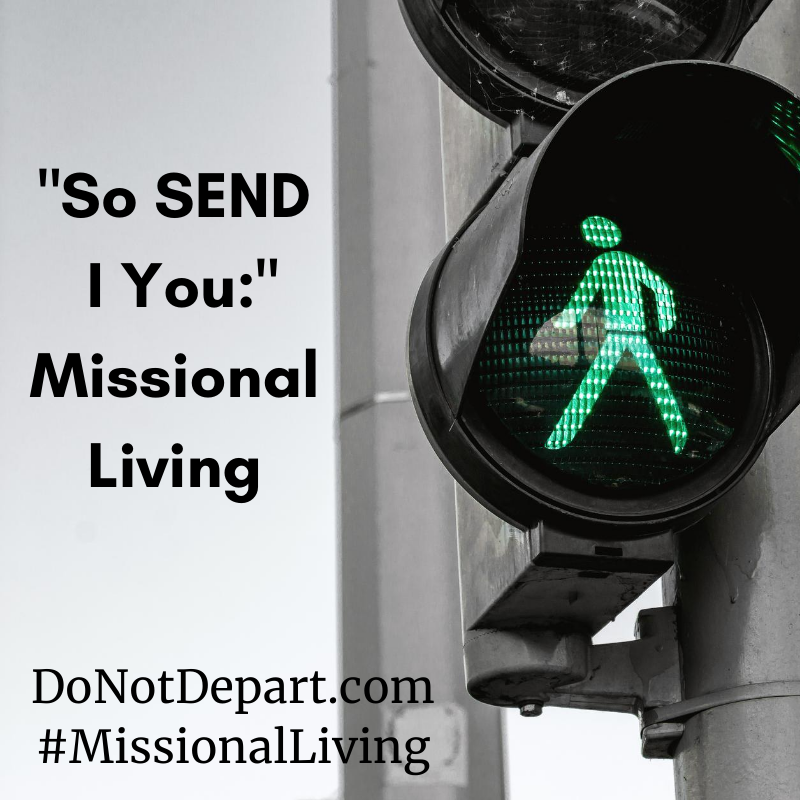Don’t leave everything to the professionals. Every believer is called to be a minister.
One of your areas of ministry? The Reconciliation Department.

When Plans Change
They met in college. He was a pre-med student. He had plans to be a medical doctor, to heal people, to make a difference. She was attracted to him and his vision.
But then he met Jesus.
And he felt a different pull. To a different direction. To become a full-time pastor of a church. To heal in a different way.
It wrecked her plans. She didn’t want to be a pastor’s wife. Now what?
Leave It to the Professionals?
There are many things we leave to the professionals: cutting out our appendix; flying our airplane; plumbing our house.
And sometimes? Making peace with others. We’d rather the professionals handle it: the counselors and psychologists and pastors.
And often we DO need their help. Thank God they’re available.
But there is a ministry of peace-making that each believer is called to do: the Ministry of Reconciliation.
We may not feel qualified to reconcile conflicts and bring harmony in our world. There are many difficult relationships that need reconciliation every day (including racial reconciliations; read Be the Bridge: Pursuing God’s Heart for Racial Reconciliation).
You’re Qualified
But we each have the credentials to be a minister of reconciliation.
Because God reconciled us to Himself through the death of Jesus, clearing away our sins, He has equipped us to reconcile others to Him and to each other.
“All this is from God, who through Christ reconciled us to himself and gave us the ministry of reconciliation that is, in Christ God was reconciling the world to himself, not counting their trespasses against them, and entrusting to us the message of reconciliation.”
2 Corinthians 5:18-19
That’s not to say it’s easy to be a Minister of Reconciliation. But it’s possible. God sends us to the work.
4 Suggestions for Ministers of Reconciliation
Here are a few suggestions as we do reconciling work.
1. BE AWARE
Before we can minister to others, we need to know others. We need to be aware of their hurts, their strengths, their relationship with God. And be aware of our own hurts, strengths, and relationship with God.
We can’t aid in reconciling what we don’t know. But neither are we responsible for knowing it all before we try (because we never can know it all). Let’s remain alert to pains around us.
2. BE HUMBLE
As the ultimate reconciler, God had to reach down to reconcile us to Him. We couldn’t heal ourselves. We had to be humble enough to reach up to Him, to Christ on the cross. In our work as ministers of reconciliation, we can continue to demonstrate humility to help others reach up to God as well.
And in our relationships with each other? Humility is also needed. Whether we’re the hurt party or the party who has done the hurting, reconciliation work requires us to be respectful, to be unpretentious, and to remain God-centered, not self-centered.
3. BE VULNERABLE
Reconciliation also requires a certain daring. It takes courage to both (1) confess our wrongs and to (2) release the wrongs others have done to us. But if Jesus has entrusted this tender work to us, He also will give us the strength to open our hearts to each other.
4. BE LED
We don’t need to walk into this calling alone. We are led to it through the guidance of Jesus. First, in the reconnecting work He does between us and Him, and secondly, in the reconnecting work He longs to do between Himself and others, including our interpersonal relationships.
We Are All Ministers Here
There will be times we won’t succeed in bringing reconciliation.
Whether healing breaches in our own relationships or in helping others return to God, this work requires all hands on deck, and often not everyone is ready when we are (and sometimes we’re not ready ourselves.)
But a beautiful quality of ministry is this: planting seeds is considered valuable work in itself. Perhaps we’ll see the fruits of the harvest; perhaps not. It’s up to God to add HIs miraculous touches for the buds to bloom in ways we can’t imagine.
My friend decided that love for her boyfriend outweighed her distaste of being a pastor’s wife. So she married him. Along their journey, she discovered many ministries of her own as a result. God’s callings often multiply in many directions.
As we continue forward in our series of #MissionalLiving this month, remember that the mission to be reconcilers is something each of us can participate in.
We all are sent.
We all are ministers here.
Please share your thoughts in the comments about your ministry.




















